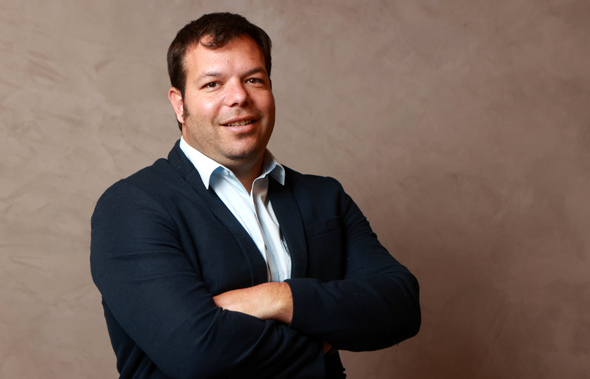Verbit reaches unicorn status with $157 million funding round
The AI-powered Israeli transcription and captioning startup is also planning a secondary round valued at $70 million in the near future and is targeting an IPO in 2022
Israeli startup Verbit, which has developed an AI-powered real-time transcription and captioning platform, announced on Tuesday that it has secured $157 million in Series D funding, giving the company a valuation of over $1 billion, just four years after its inception. The new round comes just a little more than six months after it raised $60 million in its Series C. Verbit also raised an additional $37 million in debt from Silicon Valley Bank and is expected to embark in the near future on a secondary round valued at $70 million during which the company will allow its early investors and employees to sell their shares.
Verbit CEO Tom Livne told Calcalist that the goal of the secondary round will be to provide the company's early investors an opportunity to profit from its remarkable growth. "There are investors who invested when the company was valued at $5-10 million and now they will be able to sell their holdings and register a fantastic return. The same also goes for the employees. All of Verbit's investors will partake in the secondary round," said Livne.

The round was led by Sapphire Ventures alongside new investors such as Third Point, More Capital, Omer Cygler, Azura, and ICON fund, as well as existing investors such as Stripes, Vertex Ventures and Vertex Growth, HV Capital, Oryzn Capital, Viola Ventures, and ClalTech. Verbit’s total funding now exceeds $250 million, including debt financing from Silicon Valley Bank. Big-Tech 50 R&D Partnership, traded on the Tel Aviv Stock Exchange, invested $2 million in the latest round.
"We are a very efficient company," said Livne. "We have raised over $200 million to date and a large portion of it is still in our coffers. We are approaching income of $100 million annually and are very efficient and aren't burning up funds the way many companies are currently."
When questioned regarding the valuation of the company compared to other tech startups, Livne said, "I prefer to have a fair valuation that will allow our investors to make money. I know our multipliers are realistic and normal."
Livne didn't rule out additional funding rounds, perhaps even in the near future. "If someone like Tiger Global and other similar funds makes an offer we won't be able to refuse that. We are building a company with the aim of reaching one billion dollars in annual revenue."
The transcription sector is estimated to be a $30 billion industry and Livne said Verbit still has plenty of verticals to expand into. "The transcription market was here before us, but it was completely manual previously and we brought innovation to this market," explained Livne. "We currently operate in only three verticals: media, education, and law, but there are other sectors like insurance, banking, government, and additional languages for us to expand into."
Livne understands that while his company may be prospering, this isn't necessarily as great a time for everyone. "The amount of money entering Israeli tech is crazy. So many companies are recruiting hundreds of employees to continue their growth and accelerate their activity. Everyone thought that the office real estate market would die due to Covid-19, but we are now seeing real estate prices rise as everyone is returning to work from the office. Anyone within this bubble is having a great time, but anyone who isn't is suffering. This increases the gaps in Israeli society and I hope that we will have a Prime Minister who was an entrepreneur (Naftali Bennett, M.O) and that he leverages this situation for even greater things as we are hearing of new unicorns and massive funding rounds each day and this isn't going to stop any time soon."
Following its recent acquisition of VITAC, the largest provider of captioning products and solutions in the U.S., Verbit supports more than 1,500 customers across the legal, media, education, government, and corporate sectors, including CNBC, CNN, FOX, Harvard University, Stanford University, and Kaltura, among others.
With 6x year-over-year revenue growth and close to $100 million in annual recurring revenue, Verbit continues to expand into new verticals at a hyper-growth pace.
The company is based in New York, San Francisco, Tel Aviv, and Kyiv and has more than 30,000 transcribers from 120 countries, allowing it to transform both live and recorded video and audio into 99%+ accurate captions and transcripts.
“With their hybrid transcription platform bringing together innovative technology and a network of over 30,000 transcribers, Verbit has forged a winning combination of AI and human intelligence,” said Jai Das, president and partner at Sapphire Ventures. “The company has had unparalleled growth akin to some big, well-known companies out there and we’re very impressed by the team’s ability to achieve a unicorn valuation in just four years. We’re looking forward to continuing to be part of this exciting journey with Verbit.”



